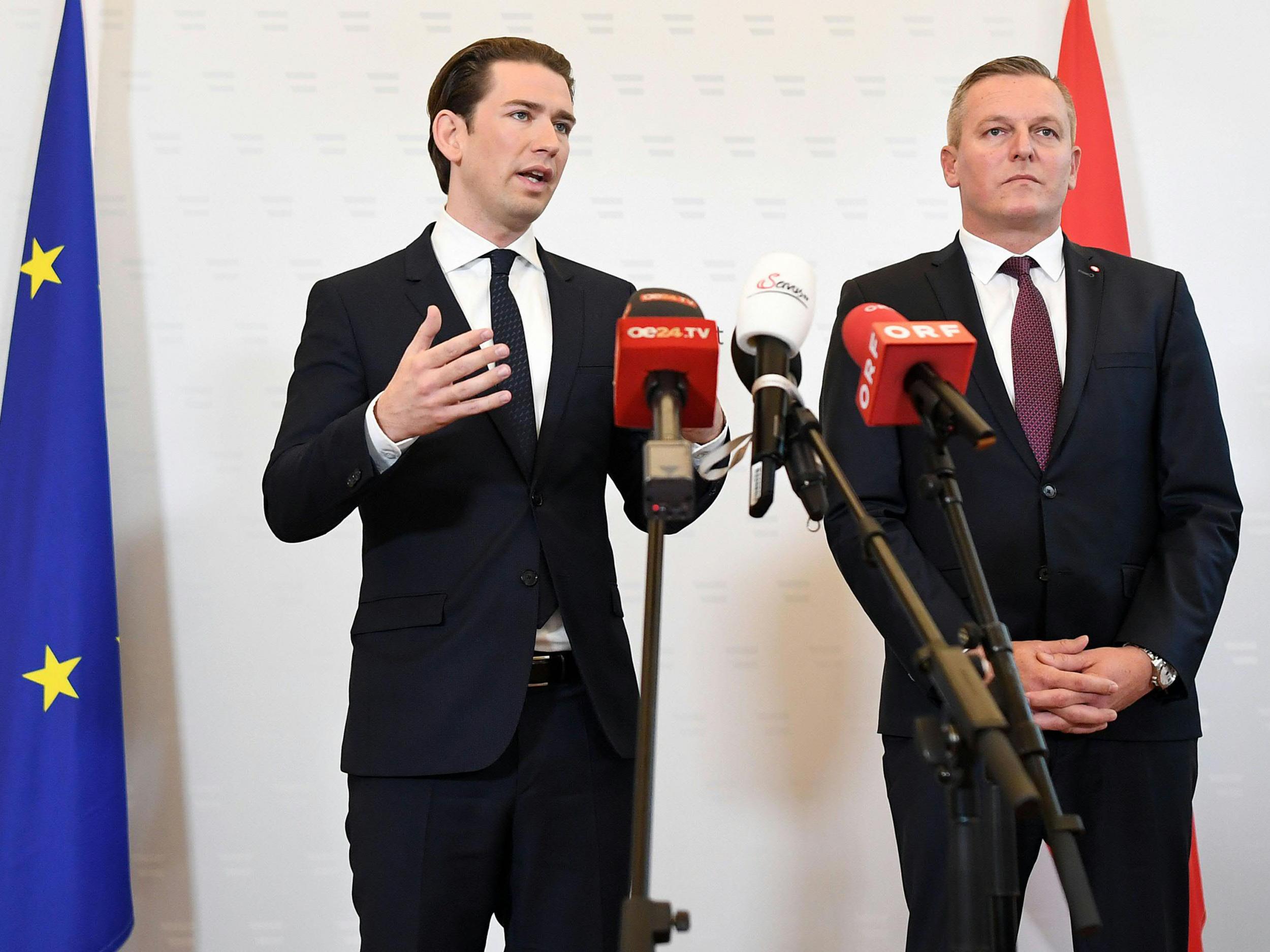Retired Austrian colonel accused of being Russian spy 'for decades'
'Such cases do not improve relations between Russia and the European Union,' says Austrian Chancellor Sebastian Kurz

Your support helps us to tell the story
From reproductive rights to climate change to Big Tech, The Independent is on the ground when the story is developing. Whether it's investigating the financials of Elon Musk's pro-Trump PAC or producing our latest documentary, 'The A Word', which shines a light on the American women fighting for reproductive rights, we know how important it is to parse out the facts from the messaging.
At such a critical moment in US history, we need reporters on the ground. Your donation allows us to keep sending journalists to speak to both sides of the story.
The Independent is trusted by Americans across the entire political spectrum. And unlike many other quality news outlets, we choose not to lock Americans out of our reporting and analysis with paywalls. We believe quality journalism should be available to everyone, paid for by those who can afford it.
Your support makes all the difference.A former senior military officer who allegedly spied for Russia for almost 20 years has been arrested in Austria following renewed scrutiny of the Kremlin’s intelligence operations in Europe after the Salisbury poisoning.
The retired army colonel, 70, allegedly supplied information to the GRU, the Russian military intelligence agency accused of being behind the Novichok attack, on weapons systems as well as political issues such as the situation regarding refugees and migrants in the country.
Austria’s governing coalition includes the pro-Moscow Freedom Party one of whose members, Foreign Minister Karin Kneissi, was photographed dancing with Vladimir Putin who was a guest at her wedding in August.
At the instructions of the head of the government, Chancellor Sebastian Kurz, Ms Kneissi cancelled a planned visit to Moscow and summoned the Russian charge d’affaires in Vienna to formally protest over the alleged spying.
Austria was one of a few Western states which did not expel Russian embassy staff following the attempted assassination of former agent Sergei Skripal, which Moscow has denied involvement in. The information leading to the colonel's arrest came, said the government, from an allied intelligence service “a few weeks ago.”.
According to government officials, the colonel, who has not been named, was in contact with a Russian intelligence official called “Juri” and information was sent by satellite equipment or code in return for payments which came to €300,000 (£260,000).
Mr Kurz said: “For the moment we are demanding transparent information from the Russian side.... If the suspicion is confirmed, such cases do not improve relations between Russia and the European Union.”
Referring to recent arrests in the Hague of GRU officers who tried to hack into the Organization for the Prohibition of Chemical Weapons (OPCW) while it was investigating the Skripal case, Mr Kurz continued: “Based on the information we have but also because of recent events for example in the Netherlands we can very much assume at the moment that our suspicion will be confirmed.”
Austrian Defence Minister Mario Kunasek said: “The case indicated that ”even after the end of the Cold War, spying has continued and shows us the need to tighten our security network, within Austria and within the defence ministry. We can't say for the moment whether this is an isolated incident or not. We will discuss further actions with our European partners.“
Russian Foreign Minister Sergei Lavrov said he had been ”unpleasantly surprised“ by the news from Vienna. "Recently our Western partners have made it a rule not to use traditional diplomacy, but instead so-called 'megaphone diplomacy' by publicly accusing us and for explanations about matters we know nothing about,“ he said. "We will call [the Austrian ambassador's] attention to the methods that must be used if you have questions to put to Russia”.
Join our commenting forum
Join thought-provoking conversations, follow other Independent readers and see their replies
Comments